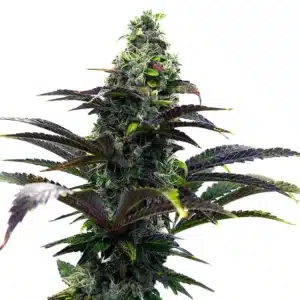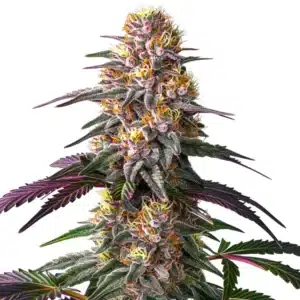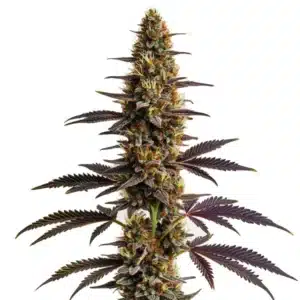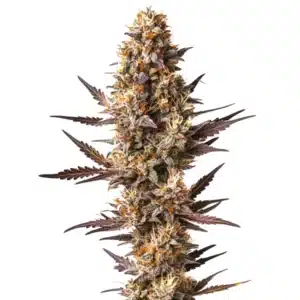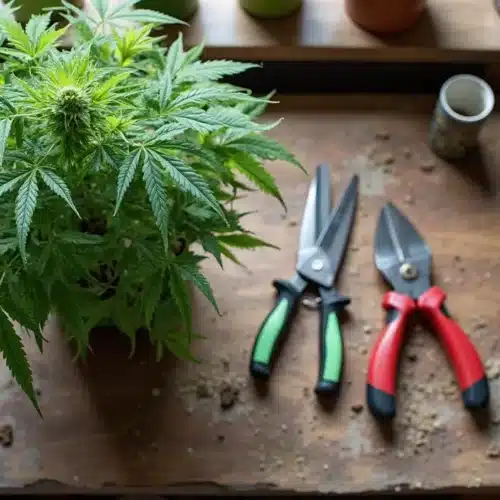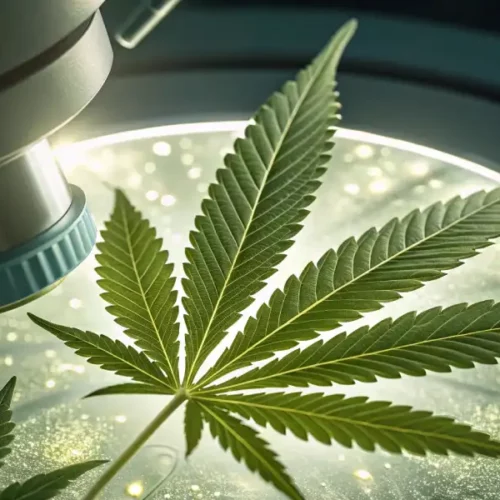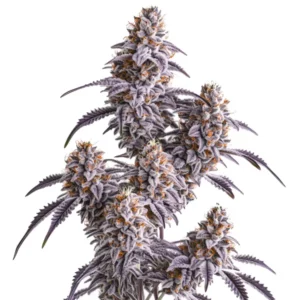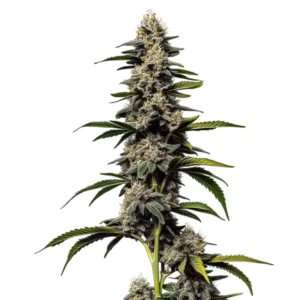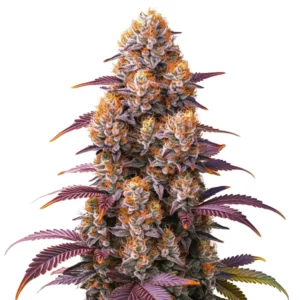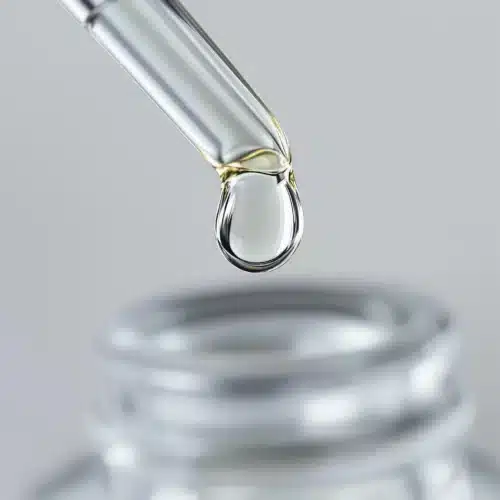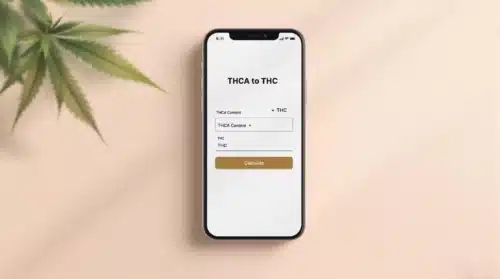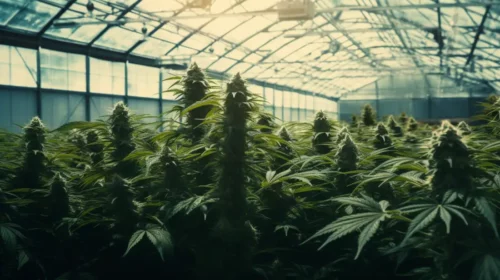Navigating the legal landscape of tetrahydrocannabinolic acid (THCA) across the United States requires a comprehensive understanding of both federal and state regulations. While the 2018 Farm Bill legalized hemp-derived products containing less than 0.3% delta-9 THC on a dry weight basis, individual states have enacted their own laws that may further regulate or restrict THCA. Below, we break down the legal status of THCA across all U.S. states, but first, let’s clarify what THCA is and its relationship to THC.
What is THCA and How Does It Differ from THC?
If you’ve ever wondered what is THCA weed, it’s a form of raw cannabis that contains tetrahydrocannabinolic acid, a non-psychoactive cannabinoid found in freshly harvested plants. Unlike THC (delta-9 tetrahydrocannabinol), THCA is non-psychoactive in its natural form. This means it does not produce the “high” associated with cannabis consumption.
The key difference lies in how THCA interacts with heat. When exposed to heat through processes like smoking, vaping, or cooking, THCA undergoes decarboxylation, converting into psychoactive THC. This chemical transformation is a critical point in understanding the legal complexities surrounding THCA. Although raw THCA is federally legal under the 2018 Farm Bill, its potential to convert to THC can create legal gray areas in certain states.

The Federal Framework: The 2018 Farm Bill
The 2018 Farm Bill was a landmark piece of legislation that federally legalized hemp and its derivatives, including cannabinoids like THCA, as long as they meet specific requirements:
- Hemp products must contain no more than 0.3% delta-9 THC by dry weight.
- Products derived from hemp, such as THCA, are considered federally legal if they remain compliant with the THC threshold.
This law distinguishes hemp from marijuana, which remains federally illegal under the Controlled Substances Act (CSA). As a result, THCA weed products must strictly adhere to the 0.3% delta-9 THC threshold to remain compliant. However, because THCA has the potential to convert to THC when heated, state-level laws vary significantly on its regulation, and in some cases, products containing THCA are restricted or prohibited.
Consumers and businesses must understand that the federal legality of THCA does not guarantee legality in all states. Many states impose additional restrictions on cannabinoids or implement stricter definitions of THC content.
Promos & Deals
The Potential Benefits of THCA
While research on THCA is still emerging, early studies and anecdotal evidence suggest it may have several potential therapeutic benefits, including the possible use of THCA for anxiety, according to preliminary findings:
- Anti-Inflammatory Properties: THCA may help reduce inflammation, making it promising for conditions like arthritis or inflammatory bowel disease (IBD).
- Neuroprotective Effects: Preliminary studies suggest THCA may support brain health and protect against neurodegenerative diseases such as Parkinson’s and Alzheimer’s.
- Antiemetic Properties: THCA could help reduce nausea and vomiting, particularly in patients undergoing chemotherapy.
- Antioxidant Benefits: THCA has antioxidant properties that may help combat oxidative stress in the body, potentially reducing cell damage and supporting overall health.
While THCA holds promise, more clinical studies are needed to fully understand its potential uses. Consumers should consult healthcare professionals before using THCA products for medical purposes.

State-by-State Breakdown of THCA Legality
The legality of THCA varies significantly from state to state. Below is an overview of each state’s stance on THCA:
- Alabama: THCA is legal in Alabama when it complies with federal regulations, requiring hemp-derived products to have less than 0.3% delta-9 THC.
- Alaska: Alaska permits the use of THCA products derived from hemp, provided they meet federal THC limits.
- Arizona: THCA is legal in Arizona under federal guidelines, allowing hemp-derived products with less than 0.3% delta-9 THC.
- Arkansas: THCA is illegal in Arkansas due to stricter state regulations on total THC content.
- California: California allows THCA products that comply with federal hemp regulations, specifically those with delta-9 THC concentrations below 0.3%.
- Colorado: THCA is legal in Colorado, aligning with federal guidelines for hemp-derived products.
- Connecticut: Connecticut permits THCA products that adhere to federal hemp laws, maintaining the delta-9 THC limit of 0.3%.
- Delaware: THCA is legal in Delaware as long as it is hemp-derived and contains less than 0.3% delta-9 THC, consistent with federal guidelines.
- Florida: THCA is legal in Florida under the same federal stipulations, permitting hemp-derived products with delta-9 THC concentrations below 0.3%.
- Georgia: Georgia permits the sale and use of THCA products that comply with federal hemp regulations, maintaining the delta-9 THC threshold of 0.3%.
- Hawaii: THCA legality in Hawaii exists in a gray area, often dependent on local interpretations of state laws and hemp regulations.
- Idaho: THCA is illegal in Idaho due to the state’s stringent regulations on THC and its derivatives.
- Illinois: Illinois allows THCA products that comply with federal hemp regulations, specifically those with delta-9 THC concentrations below 0.3%.
- Indiana: Indiana permits THCA products that meet federal hemp standards, specifically those with delta-9 THC levels not exceeding 0.3%.
- Iowa: THCA is illegal in Iowa due to the state’s strict regulations on THC and its derivatives.
- Kansas: THCA legality in Kansas exists in a gray area, often dependent on local interpretations of state laws and hemp regulations.
- Kentucky: THCA is legal in Kentucky when it complies with federal regulations, requiring hemp-derived products to have less than 0.3% delta-9 THC.
- Louisiana: THCA is illegal in Louisiana due to stricter state regulations on total THC content.
- Maine: Maine permits THCA products that adhere to federal hemp laws, maintaining the delta-9 THC limit of 0.3%.
- Maryland: THCA is legal in Maryland as long as it is hemp-derived and contains less than 0.3% delta-9 THC, consistent with federal guidelines.
- Massachusetts: THCA is legal in Massachusetts, aligning with federal guidelines for hemp-derived products.
- Michigan: Michigan allows THCA products that comply with federal hemp regulations, specifically those with delta-9 THC concentrations below 0.3%.
- Minnesota: THCA is illegal in Minnesota due to stricter state regulations on total THC content.
- Mississippi: THCA is illegal in Mississippi due to the state’s stringent regulations on THC and its derivatives.
- ChatGPT Plus
- ChatGPT
- Missouri: THCA is legal in Missouri as long as it complies with federal guidelines, meaning the product must be hemp-derived and contain less than 0.3% delta-9 THC.
- Montana: Montana allows THCA products that meet federal hemp standards. Products must not exceed 0.3% delta-9 THC on a dry weight basis.
- Nebraska: THCA is legal in Nebraska when it adheres to federal hemp regulations, maintaining the delta-9 THC limit of 0.3%.
- Nevada: THCA is legal in Nevada under federal hemp laws, provided it is derived from hemp and contains less than 0.3% delta-9 THC.
- New Hampshire: THCA products are legal in New Hampshire as long as they align with federal hemp guidelines.
- New Jersey: THCA is legal in New Jersey if it meets federal hemp standards and contains less than 0.3% delta-9 THC.
- New Mexico: THCA is legal in New Mexico, adhering to the 2018 Farm Bill regulations for hemp-derived products.
- New York: THCA is permitted in New York as long as it complies with federal hemp laws, specifically maintaining delta-9 THC concentrations below 0.3%.
- North Carolina (NC): Is THCA legal in NC? Yes, North Carolina allows THCA products that comply with federal regulations, meaning they must be hemp-derived and have no more than 0.3% delta-9 THC.
- North Dakota: North Dakota permits THCA products that align with federal hemp guidelines and maintain the delta-9 THC threshold.
- Ohio: THCA is legal in Ohio under federal hemp laws, provided it contains less than 0.3% delta-9 THC.
- Oklahoma: THCA is legal in Oklahoma when derived from hemp and meeting the federal delta-9 THC limit of 0.3%.
- Oregon: Oregon allows the sale and use of THCA products in line with federal hemp regulations.
- Pennsylvania: Is THCA legal in Pennsylvania? Yes, Pennsylvania permits THCA products that meet federal hemp standards with delta-9 THC concentrations below 0.3%.
- Rhode Island: THCA is legal in Rhode Island under federal hemp laws, adhering to the delta-9 THC threshold.
- South Carolina (SC): Is THCA legal in SC? Yes, South Carolina allows THCA products that comply with federal hemp guidelines, requiring delta-9 THC levels to remain under 0.3%.
- South Dakota: THCA legality in South Dakota aligns with federal hemp laws, allowing compliant products to be sold and consumed.
- Tennessee: Is THCA legal in Tennessee? Yes, Tennessee permits the sale and possession of THCA products that meet federal hemp regulations.
- Texas: Is THCA legal in Texas? Yes, THCA is legal in Texas under federal guidelines, provided the product is hemp-derived and contains no more than 0.3% delta-9 THC.
- Utah: THCA is legal in Utah, aligning with federal regulations for hemp-derived products.
- Vermont: Vermont allows THCA products as long as they comply with federal hemp standards, maintaining the delta-9 THC threshold.
- Virginia: THCA is legal in Virginia under federal hemp laws, provided it meets the 0.3% delta-9 THC requirement.
- Washington: Washington permits THCA products in compliance with federal hemp guidelines.
- West Virginia: THCA is legal in West Virginia as long as it meets federal hemp standards for delta-9 THC levels.
- Wisconsin: Is THCA legal in Wisconsin? Yes, Wisconsin allows THCA products that align with federal hemp regulations, requiring delta-9 THC to remain below 0.3%.
- Wyoming: Wyoming permits THCA products that meet federal guidelines, ensuring delta-9 THC remains within the legal threshold.
THCA legality across the United States requires staying updated on both federal and state regulations. While the 2018 Farm Bill allows hemp-derived THCA with less than 0.3% delta-9 THC, individual states such as Idaho, Louisiana, and Iowa impose stricter rules, often making THCA illegal. States like Texas, Florida, Georgia, Tennessee, and Wisconsin permit the use of THCA when federal standards are met.
Consumers should always verify local laws and ensure the products they purchase comply with both federal and state regulations to avoid legal complications.

